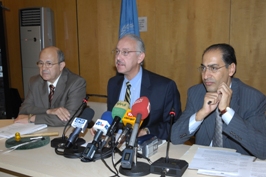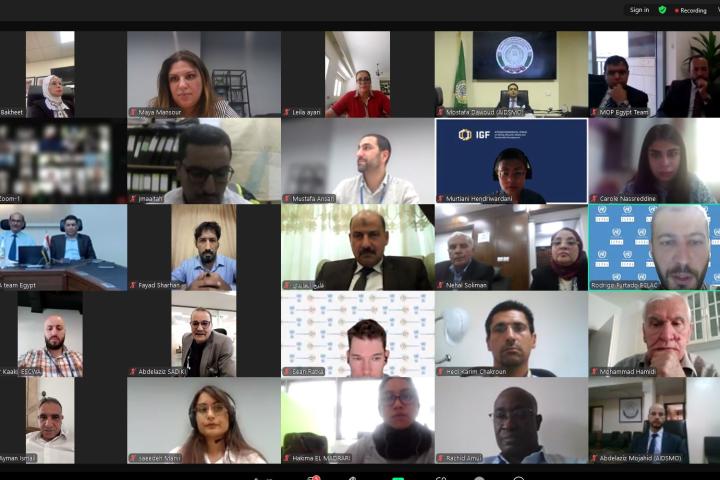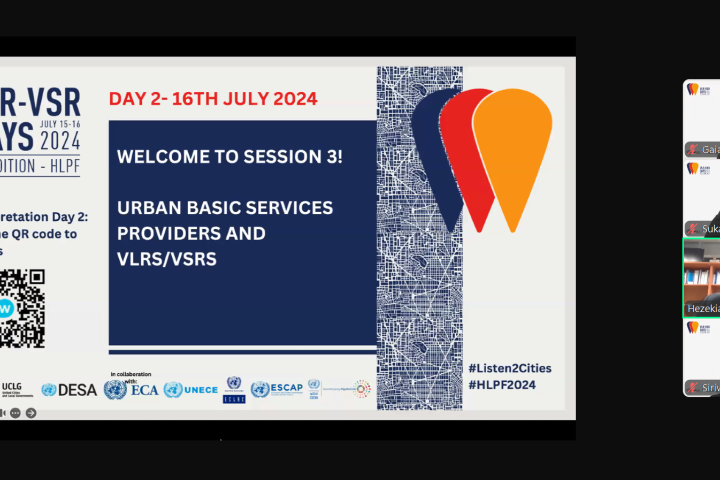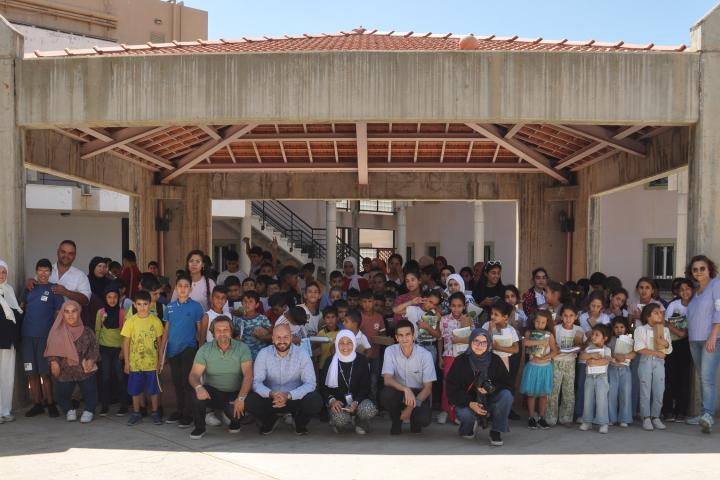ESCWA and the UN Information Centre in Beirut (UNIC-Beirut) organized a press conference to launch the Trade and Development Report 2009 (TDR 2009) released by the UN Conference on Trade and Development (UNCTAD) every year. Speaking at the conference were UNIC-Beirut Director Bahaa ElKoussy, Chief of the ESCWA Economic Development and Globalization Division Nabil Safwat, and Economist at the Jordan University, Ibrahim Saif.
ElKoussy introduced the report, saying it focused on the main challenges that all developing countries and countries with economies in transition face in the areas of trade and development and in the interrelated issues of finance, investment, technology and sustainable development. It also pays special attention to the Least Developed Countries (LDCs), taking into account the needs, priorities and experiences of developing countries, as well as their different levels of development. He added that this year's report is subtitled: "Responding to the Global Crisis" and "Climate Change Mitigation and Development".
.
The report analyzes global economic prospects within the framework of the current economic and financial crisis. It also heeds the short-term fiscal, financial and monetary policies that were adopted in response to the impacts of the 2008-2009 crisis.
"While the ongoing global financial and economic crisis, its impact on developing countries and the policy responses to that crisis have been at the centre of economic concerns since mid-2008, another pressing preoccupation for peoples and governments around the world continues to be the threat of global warming that implies considerable risks for living conditions and developmental progress," ElKoussy said. He added "against this background, TDR 2009 is also addressing the question of how increased efforts aimed at climate change mitigation can be combined with forward-looking development strategies and rapid growth in developing countries".
Safwat, for his part, said "the coming phase will witness an overhaul of economic and financial policies in the world. Our region cannot be an idle observer, but should actively participate in this process and take part in the solution". Safwat focused in his statement on ESCWA recommendations related to assisting member countries to deal with the global financial crisis in the region.
Safwat classified the countries of the region into four separate groups: oil-exporting countries, countries with diversified economies, LDCs, and countries under occupation. ESCWA lays the foundation of dialogue among decision-makers as well as international and regional bodies on means to overcome the crisis. It also provides member countries with advisory services in the context of devising policies on confronting the financial crisis and managing its transitional phases. Thus, it held a high-level consultative meeting for member countries on 5-7 May 2009 in Damascus that came out with a host of recommendations and measures to assist these countries in managing the crisis and anticipating its results.
Recommendations included: requesting member countries to implement a sustainable expansionary financial policy to boost local demand, reduce the period of slow economic growth, and speed up the pace of achieving the Millennium Development Goals (MDGs); encourage national, regional and global funds that provide additional liquidity to member countries facing such crises; seek to achieve economic diversity to minimize reliance on the oil sector; and facilitate intra-flows of trade in goods, services, individuals and capitals among ESCWA member countries to promote regional integration, alongside other measures.
Meanwhile, Ibrahim Saif noted that the report carries three messages regarding the global economy and ways to deal with it. "The first message revolves around the consequences of the global financial crisis on developing countries and how they have dealt with it, in addition to the impacts of this crisis on some countries that will be unable to achieve the MDGs on time", Saif said. "The second message," he added, "concerns some proposed solutions to deal with this crisis, which involve, in addition to policies listed by Safwat and ESCWA, currency exchange rate policies, as well as financial and monetary flows among countries and their impacts on deepening the crisis". According to Saif, the third message "is related to the environmental aspect, otherwise known as sustainable development, and to countries'ability to achieve balance between the economic development policy on the one hand and environmental policies on the other".
The report said that more effective regulation and supervision of financial market activity is indispensible to prevent a repeat of the current global financial and economic crisis. But equally important is a reform of the international monetary and financial system aimed at reducing the scope for gains from currency speculation, and at avoiding large trade imbalances.
UNCTAD economists cite deregulation of financial markets as the main cause of the global financial and economic crisis. Absence of regulation allowed uncontrolled innovation in financial instruments that obscured creditor-debtor relations and invited irresponsible risk taking.
The report argued that climate change mitigation does not contradict development goals but is a process of structural change worldwide that offers enormous economic opportunities for enhancing development. The Copenhagen Conference on Climate Change scheduled for December offers a new opportunity to engage all countries in an effective international framework for policies aimed at reducing greenhouse gas emissions and limiting global warming. For developing countries and transition economies to benefit from these opportunities, necessary structural changes cannot be left to market forces alone; proactive industrial policies must be undertaken to link into the fast-growing market for "green technology" and "environmental goods".




